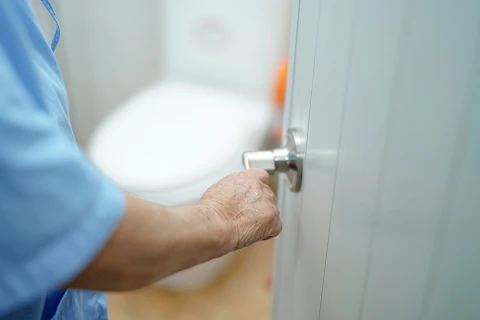
Incontinence is a common issue that affects many older adults. It can be an uncomfortable topic to discuss, but having open conversations helps ensure a high quality of life for seniors. By talking openly about senior incontinence, family caregivers can help their loved ones manage the condition with dignity and ease.
What Senior Incontinence Entails
Incontinence refers to the involuntary loss of bladder control. It can result from several causes, such as weakened pelvic muscles, certain medications, or chronic conditions like diabetes. Incontinence can greatly impact a senior's daily life and cause discomfort or emotional distress. A supportive approach is important to help manage the condition effectively.
Lifestyle Changes for Managing Senior Incontinence
By making certain lifestyle changes, caregivers can better help seniors manage this condition.
1. Diet and Hydration
Diet changes work well to manage senior incontinence. Some foods and drinks can irritate the bladder and make symptoms worse. It's helpful to identify and avoid these triggers, which often include caffeine, alcohol, and spicy foods. Instead, incorporate bladder-friendly foods like whole grains, lean proteins, and fiber-rich fruits and vegetables into seniors' meals. While staying hydrated is necessary, seniors should opt for water and drink moderate amounts throughout the day.
2. Scheduled Bathroom Breaks
Establishing a regular bathroom schedule can help manage incontinence. Encourage seniors to use the restroom at consistent intervals, such as every two to three hours, rather than waiting until the urge is strong. Keeping a daily routine can also help reduce accidental leaks and provide peace of mind for seniors and caregivers.
3. Pelvic Floor Exercises
Pelvic floor exercises, routinely called Kegels, strengthen the muscles that support the bladder. These exercises can also be done at home and are a simple way to improve bladder control. To perform Kegels, have the senior contract the muscles used to stop urine flow, hold for a few seconds, and then release. Repeating this exercise several times daily can lead to significant improvements over time.
4. Clothing Choices
Choosing the right clothing can also make managing senior incontinence easier. Loose-fitting, easy-to-remove clothing with elastic waistbands can help seniors reach the bathroom quickly. Additionally, consider absorbent undergarments that offer discretion and protection. Look for products that are designed for comfort and confidence.
5. Home Modifications
Making the home more incontinence-friendly can be a big relief for seniors. Consider simple modifications like installing grab bars in the bathroom, adding nightlights, or using non-slip mats to prevent falls. These changes can make bathroom access safer and more convenient, reducing the risk of accidents.
6. Use of Incontinence Products
Incontinence products can also provide much-needed protection and confidence. Caregivers should familiarize themselves with the various products available, including disposable pads, protective underwear, and washable briefs. Choosing the right product depends on the senior's level of incontinence and personal preferences. Consulting a healthcare professional can help identify the most suitable options.
7. Emotional Support and Communication
Emotional support can also work wonders. Encourage open communication with seniors to reduce any feelings of embarrassment. Listen to their concerns and reassure them that they are not alone. By fostering a supportive and understanding environment, you can help alleviate the stigma associated with senior incontinence.
Get Personalized Support From Senior Helpers
Addressing senior incontinence with thoughtful lifestyle changes can make a significant difference in maintaining dignity and quality of life. Caregivers can offer effective support by focusing on these lifestyle changes and communicating with empathy and understanding.
For personalized support and care for seniors dealing with incontinence in Potomac, Hyattsville, Rockville, Washington, D.C., or Bethesda, contact us at Senior Helpers Rockville today.